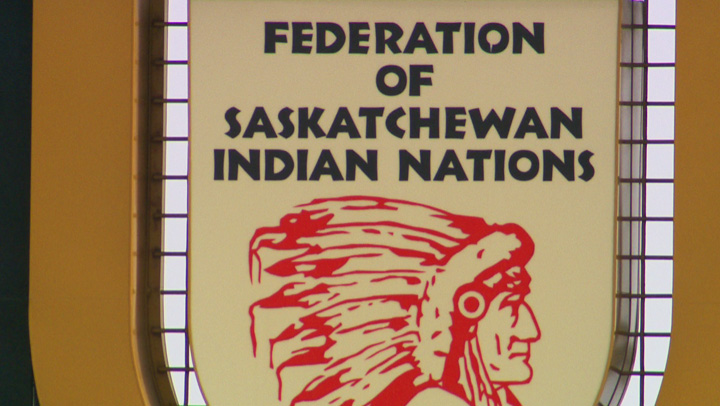SASKATOON – Saskatchewan’s premier is unflinching on his stance after an attack from the Federation of Saskatchewan Indian Nations (FSIN) in regards to a deadly fire last month on one of the province’s reserves. Interim FSIN Chief Kimberly Jonathan is taking Brad Wall to task, saying he implied a lack of leadership on all First Nations in recent articles from two newspapers, The Saskatoon StarPhoenix and Regina’s Leader-Post.

“That any leader would exploit the deaths of innocent children and use a tragedy such as this to attack all First Nations leaders is inherently wrong and truly unfortunate,” stated Jonathan.
“To suggest that First Nations leaders are not concerned about the safety and well-being of their citizens is baseless. Had Premier Wall shown true leadership by discussing these issues directly with First Nations, he would have found that action is being taken.”
Wall calls Jonathan’s accusation that he would exploit the Makwa Sahgaiehcan First Nation tragedy “ridiculous.”
“I think this is a regrettable response … because there is an opportunity to work together,” said Wall.
“As for the provincial government, it has its own responsibilities with respect to certain Crown lands and through the Fire Commissioner’s office offers training, education and investigative services for local fire protection and safety efforts.”
On Feb. 17, the bodies of 18-month-old Hayley Cheenanow and her two-year-old brother, Harley, were carried by their father out of their burning home on the Makwa Saghaeihcan First Nation.
The cause of the deadly fire was “undetermined.”
READ MORE: Firefighting cut to Saskatchewan reserve due to unpaid bills
Wall also said fire protection is a local responsibility and elaborated on what he meant when talking about leadership.
“If this particular situation is not an exception, but rather is the case on other First Nations or any other community, then leaders need to step forward and deal with it quickly,” said Wall.
“Lives hang in the balance, literally.”
FSIN said it has exhibited collective leadership.
On Tuesday, FSIN said it has taken part in discussions involving the University of Saskatchewan’s Center for the Study of Co-operatives already and First Nations in the province are well on their way to developing an institution that will enable tribal councils to deliver essential services, such as fire protection and emergency management.
“Unless there is a significant increase in funding, there is no way First Nations can meet any kind of fire safety codes and regulations. The federal government has to meet with First Nations immediately to begin finding solutions rather than unilaterally imposing legislation. We do not want to see any more lives lost,” said FSIN vice chief Dutch Lerat on Feb. 19.
Four other people have died on Saskatchewan reserves in house fires over the last three months.
On Dec. 29, 2014, there was a house fire caused by a wood-burning stove on the Ahtahkakoop Cree Nation. Donna Kay, 61, and Teegan Ahenakew, 10, were unable to get out and their remains were recovered two days later.
On Jan. 18, 2015, a 24-year-old woman and a 10-year-old boy died after a house fire on the English River First Nation. The victims were removed from the building by members of the community and the local fire department.
Both of these reserves are listed online as members of the 74 First Nations represented by FSIN.
“First Nations leaders continue to struggle with as little as fifty cents on the dollar compared to provincial funding levels across the board to deliver equivalent programs and services in every area,” said Jonathan.
“First Nations need cooperation and call upon the federal and provincial governments to support the development of a technical service provider that will enable tribal councils to deliver essential services to First Nations, by First Nations.”
Mike McKinnon contributed to this story


Comments